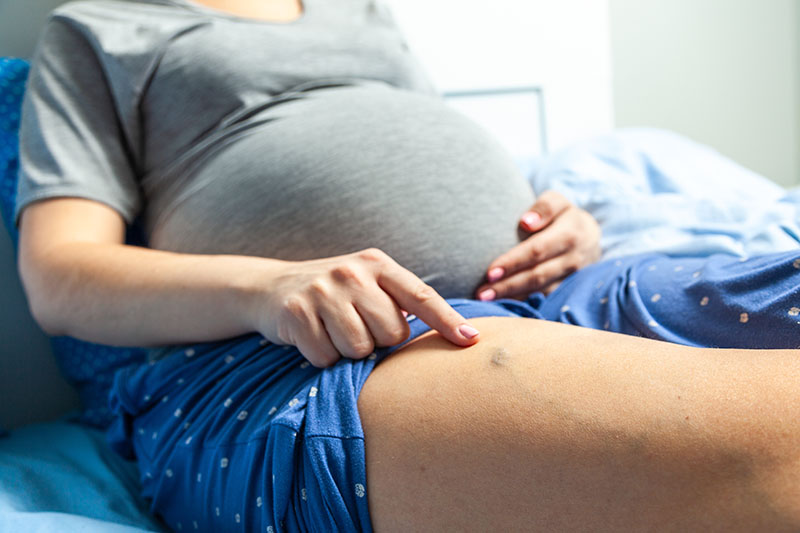Varicose Veins In Pregnancy
When pregnant there is an increased risk of developing varicose veins in the groin and legs.
This is because.
(1) There is an increased amount of blood carried within the veins stressing them beyond normal.
(2) A higher level of progesterone (Pregnancy hormone) that relaxes the vein walls making them more likely to fail causing swelling in the vein.
(3) A growing uterus that causes congestion of the pelvic veins resulting in increased pressure on the leg veins.
Apart from the physical appearance of the varicose veins during pregnancy there may be several associated symptoms such as
(1) Swollen feet, legs and ankle.
(2) An uncomfortable heavy feeling in your legs.
(3) Leg cramps and throbbing sensations.
(4) Itchy ankle.
(5) Discoloration around the veins.
In general treatment of varicose veins during pregnancy is avoided as it may place undue risk on the growing fetus.
There are several measures you can adopt to manage the symptoms of varicose veins in pregnancy that are safe.
(1) Exercise by walking regularly that the leg muscle pump and helps transport blood out of the legs.
(2) Wear flats-choose your footwear wisely and avoid high heels except for short periods. Wearing high heels reduces the effectiveness of the calf muscle pump thereby reducing the outflow of blood from the legs.
(3) Support the veins by wearing support hose or stockings during the pregnancy. This helps counteract the pressure that is developing inside the veins that causes them to swell. Full hose or thigh high stockings are the best option when you are pregnant. Try to wear the stockings most of the day which can be removed at night when in bed.
(4) Regularly change positions from standing or sitting. Avoid prolonged sitting or standing. It is best to move between positions regularly.
(5) Sleep on your left side-as your belly becomes larger it becomes increasingly uncomfortable to lay on your back. If you have varicose veins you should try to sleep on your left side. This helps prevent the uterus from pushing against the veins in your pelvis and helps move blood out of the leg veins.
(6) Elevate your legs throughout the day. Ake some time to rest and elevate your legs that will reduce the congestion in the leg veins.
(7) Watch your weight-weight gain is inevitable during pregnancy but the more weight you gain the more pressure is being placed on the veins.
If you adopt these measures then you have done your best to reduce the symptoms due to the veins that have developed during pregnancy.
Varicose veins in pregnancy in many instances resolve within 3 months after the baby is born. If the veins persist beyond 3 months, then it is advisable to see a phlebologist for assessment. It is generally advised to have varicose veins treated before or between pregnancies to prevent them from worsening and to reduce the symptoms.

